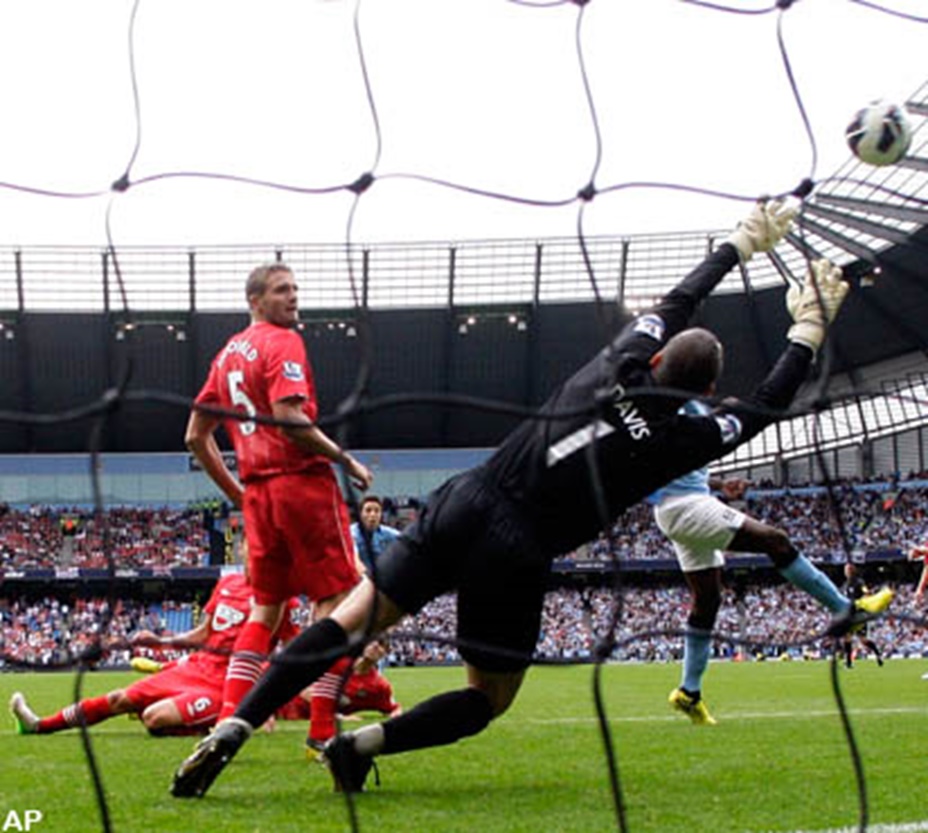EPL CEO Richard Scudamore believes football can certainly learn from the positivity surrounding the London Games, a debate "that is going on within the sport" as it began its new season this past weekend, according to Eleanor Crooks of the London INDEPENDENT. Scudamore was "keen to talk up the steps that have already been taken" at the launch of the 21st Premier League season. Scudamore: "Behavior has improved. When you talk to referees, definitely the relationship has improved, and player to player as well. But we have to carry on making not just incremental gains but seismic gains." However, last season "did not show footballers in the best light" at times, particularly the racism rows centering on players Luis Suarez and John Terry (INDEPENDENT, 8/17). In London, Ian Whittell wrote that there is a sense that the "extent of the damaging evidence unearthed in the recent Terry trial, following allegations of racism against [player] Anton Ferdinand, showed that football had reached a watershed in its relationship with sports fans" (TELEGRAPH, 8/16).
OLYMPIC LESSON: In London, Alex Clark wrote "selfless sportsmanship at the [London] Games was seen as an antidote to the moneyed cynicism of the Premier League." As the new season begins, many believe football "must work on its image or risk losing some of its audience." Arsenal season ticket holder Jerry Kent said, "We come to Arsenal and it's great, but I would never take these boys to an away match. It's too aggressive. I think we can learn a lot from the Olympics." The spirit of the Olympic Games, celebrated as "a spectacle of selfless, uplifting sportsmanship, has cast a large shadow over a game too often associated with outrageous salaries, gamesmanship and snarling exchanges." England is "in the mood for more Bradley Wiggins-style humility and less John Terry-type brashness." The idea that football may need to clean up its act when it comes to player dissent and other less savoury aspects of the "beautiful game" was echoed by League Managers Association CEO Richard Bevan. Bevan: "It's up to everybody in the game. When you consider the game is reaching 720 million households around the world, the amazing success that comes with that is obviously creating responsibility (GUARDIAN, 8/18). Also in London, Gary Neville wrote of the challenges football faces: "We do need to link football back to the community, get closer to the fans and make it more affordable. There is excess. There are problems with the globalisation of the game. And there are incidents of ill-discipline by players." However, nothing is "ever as bad as it seems and nothing is ever as good as it seems." He continued, "I'm delighted that the Olympics were so successful and proud of the sportsmen and women who worked so hard to achieve their goals to win medals for Team GB. But it's just lazy to use their success as a stick to beat football." Saying that "footballers are lazy or they need to be more humble or they can learn so much are just sweeping generalisations." The biggest challenge for footballers would be "stripping away the layers of PR people and agents who speak for them." That denies players "the chance to communicate their own humanity, humility and professionalism" (DAILY MAIL, 8/18).
OWN WORST ENEMY: Also in London, Patrick Collins opined that football comes "trampling through the front door; thumping its chest and waving its wad" all while England "revels in the glories of an Olympic summer." It is "largely unloved and widely unwelcome, a sport reduced by its tawdry excesses." Scudamore is "an intelligent man who pretends to be stupid when it suits his purpose but, on this occasion, he exceeds his brief." Scudamore said, "Behavior has improved. Among the senior players especially, there's a genuine understanding and concern about these issues." Collins asks, "So, which senior players does he have in mind? Latter-day saints such as John Terry, Anton Ferdinand, Luis Suarez, Ashley Cole, Joey Barton; all those people who have scarcely put a foot wrong since 2008?" He continues, "It is gibberish, of course, as even the most infrequent football watcher could testify, but it is a measure of football’s smug insularity that the man charged with running its most important competition can propagate such palpable tosh." Then there are the "screeching, threatening, intimidating" crowds that Scudamore describes as "tribal." The term is "disingenuous," since it offers "a blanket absolution for vile abuse." During the Olympics, we discovered that "sports crowds could be honestly partisan." Opponents "are not enemies." Respect is "not a sign of weakness." Only in football "is it considered admirable to be biased to the point of imbecility." EPL footballers "remain their own worst enemies." They contest every decision, since "that is the way they were brought up to play." They "dive like a school of dolphins, unaware that the public at large loathes them for their duplicity." The "public observes, and the public deplores" (DAILY MAIL, 8/18).
LOSING LUSTER: In London, Hugh McIlvanney wrote "the contrast between the refreshing competitive values in evidence at the Olympics and those frequently on show in the national game was too nakedly inviting to be resisted." He continued, "It’s certainly never my inclination to understate how heart-sinkingly unappealing highly paid footballers and their antics on and off the field can be. Nor is there a trace of any desire to shield them against criticism in the urge to stress the differences separating their performing environment from that of the Olympians." Yet, "attempts to relate the two become laboured and unconvincing the moment we move beyond a legitimate longing to see more of the grace and untainted commitment displayed in the Games manifested in the Premier League" (SUNDAY TIMES, 8/19).




